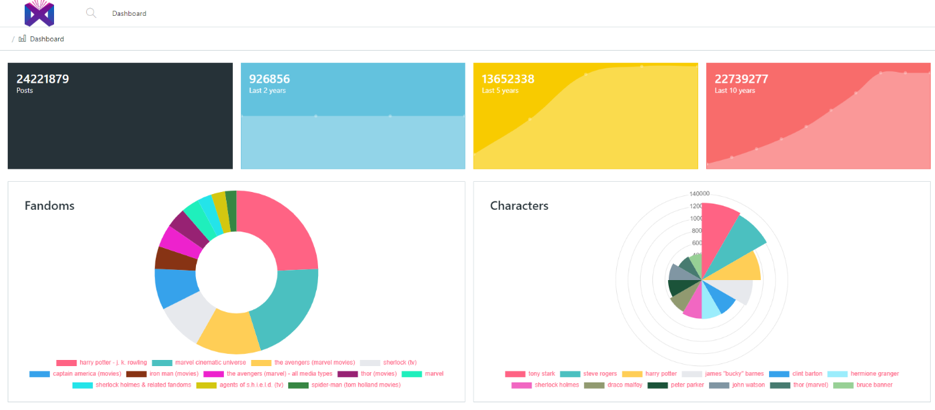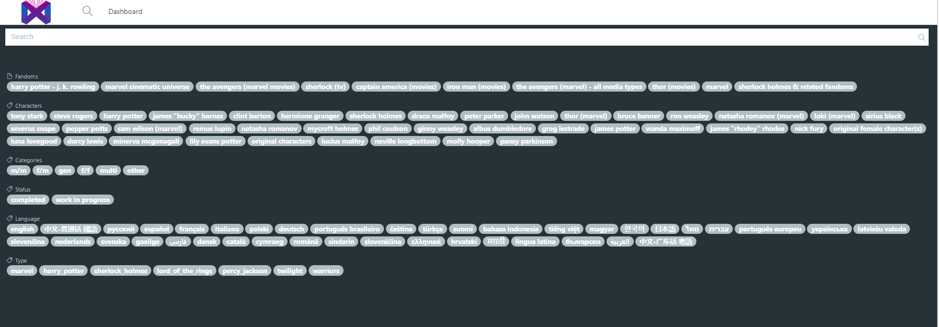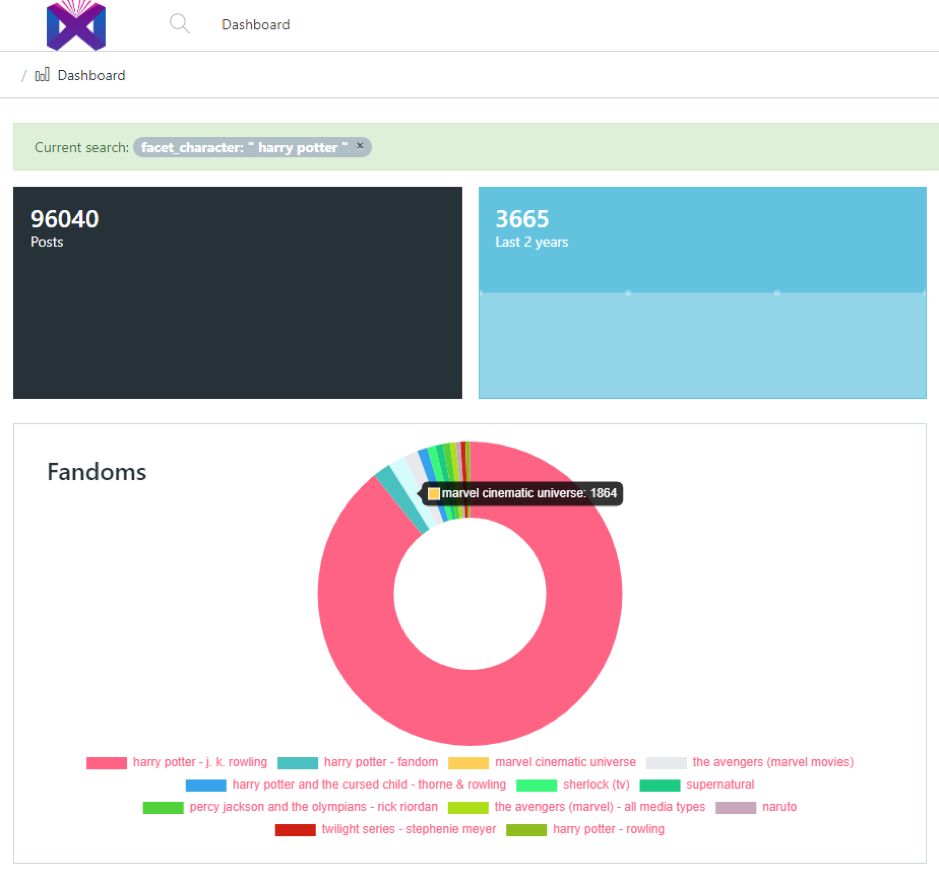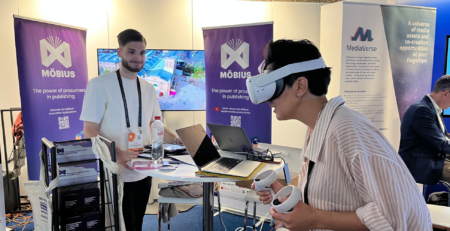Introducing Möbius’ Prosumer Intelligence Toolkit: a dashboard to gather essential knowledge on readers’ habits.
Wouldn’t a tool telling publishers about their readers’ habits and passions be the innovation they always dreamed of? Telling publishers what readers would want to see in their next books, which characters to expand upon… Horizon 2020 project Möbius, Aldus Up partner, will not make publishers capable of reading minds, but is surely working to get them as close as possible to their customers.
In this specific case, the Möbius team is trying to close the gap between readers and publishers with the Möbius Prosumer Intelligence Toolkit, or PIT, one of the technological innovations that the project is developing, along with a multimedia environment featuring tools for writers and readers alike (the Möbius’ Creator and the Möbius Player).
In short, the Prosumer intelligence Toolkit is a dashboard that, when fed datasets from readers’ communities, will allow users to extrapolate key Insights from the readers’ interactions. What distinguishes Möbius’ Intelligence Toolkit from similar tools, is that it focuses on readers as prosumers and not simply as consumers.
What is the Prosumer Intelligence Toolkit? And what is a prosumer?
In order to develop its Toolkit, the Möbius team decided to work on a specific subset of readers, to tap into a relatively unexploited source of information, namely prosumers. The term “prosumer” was coined in 1980 by American futurist Alvin Toffler and became increasingly popular to describe a new paradigm in which users are not just passive consumers, but rather are “individuals who consume and produce value, either for self-consumption or consumption by others, and can receive implicit or explicit incentives from organizations involved in the exchange” (Lang et al, 2020). In other words, prosumers add value to the products they consume via their activities. For example, via commenting, writing reviews, creating fan art, etc. Prosumers engage with products creating new content associated with them. This in turn generates value for the whole, perhaps by informally advertising the product, or simply by furthering the prosumers’ enjoyment of it.
Traditional customer intelligence methods consider users as passive consumers that might buy or not buy products and try to analyse their behaviour and preferences in order to maximize sales. Consequently, they are unable to capture and boost the value created by the users as producers. To give an example of such value for the publishing industry, suffices to think of the rag-to-riches story of Fifty Shades of Grey, by E.L. James. Originally a fanfiction of Stephenie Meyer’s Twilight, it became a massive best seller with more than 100 million copies sold worldwide. Or less exceptionally, one can simply consider the role that word-of-mouth plays in the making of hits on #BookTok or YouTube.
As a matter of fact, the Möbius team decided to focus on a specific subset of prosumers when developing its tools, due to their connections with traditional publishing, namely fanfiction writers and readers. That is, the Prosumer Intelligence Toolkit was created studying prosumers enjoying fanfictions and belonging to fanfiction communities.
A fanfiction is an amateur work which expands on existing media, either by adding new scenarios, or new characters, or perhaps combining different pre-existing IPs in original stories and universes. Fanfiction writers end up creating entire new “unofficial” canons, which might spread out in transmedia fan works: pictures, music, and even movies. Also, as we saw with Fifty Shades of Grey the relationship between traditional publishing and fanfiction is not completely unidirectional: fanfiction writers might be published, and their works turned into commercially successful creations.
Fanfiction communities offer a sizeable sample of prosumer interactions and proved ideal to develop the architecture that became the core of the Möbius’ Toolkit, as thousands of stories, comments, and reactions are generated in these communities every day and attest to prosumers’ passion for different stories and IPs, leaving traces of their tastes and desires. Once optimised, the Möbius’ Toolkit will be easily applicable to live data sets belonging to publishers’ workflows, perhaps on “proprietary” fan communities, allowing publishers to understand their audiences much better than before.
More technically, to build the PIT, the Möbius’ team chose to use data from three main fanfiction communities, due to their importance for prosumers and their accessibility to researchers. Also, the team limited itself to a selected number of IPs (or fandoms) to make the project more manageable. As a result, the current iteration of the toolkit is built on research on three massive fanfiction and prosumer websites: Archive of Our Own (AO3), Fandom.net, and Wattpad, and covers data from seven major fandoms: Marvel, Harry Potter, Sherlock Holmes, Lord of the Rings, Percy Jackson, Twilight, and Warriors. As we saw, however, the Möbius team is building this product with the idea of having it implemented in publishers’ workflows, adapted to their own IPs and their own communities.
In this sense it is pivotal for the Möbius workflow that publishers get involved in the development of the tool for it to be adapted to their needs and their requirements once completed. Publishers can find a calendar with the next PIT open piloting days here, where they can have their say on the tool’s specifications.

What would I see if I were to test the Toolkit now?
The current dashboard is a proof-of-concept and relies on a fixed data set rather than on real time interactions among prosumers, as it is intended to work when introduced in a publisher’s workflow. Thus, while covering around 20 million items, it does not show yet dynamic trends, a feature highly sought after by publishers. The prototype PIT then privileges data associations; in other words, it shows how, within a given dataset, interactions can be visualised and navigated. For example, the PIT’s current iteration can show how specific IPs are correlated to each other by prosumers in the communities studied, or how content on specific IPs grew in time. Information that, while currently is just interesting, might become vital to publishers when extracted from engagements with their own IPs, from communities associated with them: it can help publishers in developing crossovers among different properties, or in designing editorial calendars responding to readers’ interests.
Further to this high-level information, the PIT can provide a breakdown of prosumers’ content via other categories such as their completion status, their language, and other groupings, for extracting much more nuanced business insights.

What would I not see if I were to test the Toolkit now?
As detailed above, in its current iteration the dashboard shows relations and not trends. This is due to the fact that the dashboard is now working on collected static data, and trends cannot be generalised from such content. However, once implemented, trend visualisation will become possible, helping publishers even further. Also, the PIT prototype cannot visualise information on emotions associated to specific IPs, as those primarily emerge in comments to single works and might be related to their content; for example, a horror story might generate negative emotions, whereas a romantic one, positive ones; while this is to be expected, it is difficult to correlate meaningfully similar reactions on a scale such as that provided by the PIT sample.
Lastly, but very importantly, the PIT will work on big data, and it is built in a way to correlate information with content, not with users. The PIT does not and will not allow users to connect specific content to specific prosumers, in any way.

Conclusions: and now?
Publishers’ reactions to the PIT were in the end mostly positive, albeit not completely so: in the first tests carried out in 2022, publishers taking part in the pilots run by the Möbius team expressed interest in the potentialities of the Tool, and praised its interface, albeit with some doubts on its more technical aspects, harder to convey with a platform developed completely from scratch; it is therefore vital that publishers now take part in as many pilots they can, in order to fine-tune its newer iteration to their requirements in different areas of application. So publishers keen on integrating data analysis in their workflow should keep an eye on Möbius’ calendar and subscribe to the project’s newsletter here to be kept in the loop on the project’s development.
By Gino Querini,
project officer at the Federation of European Publishers












